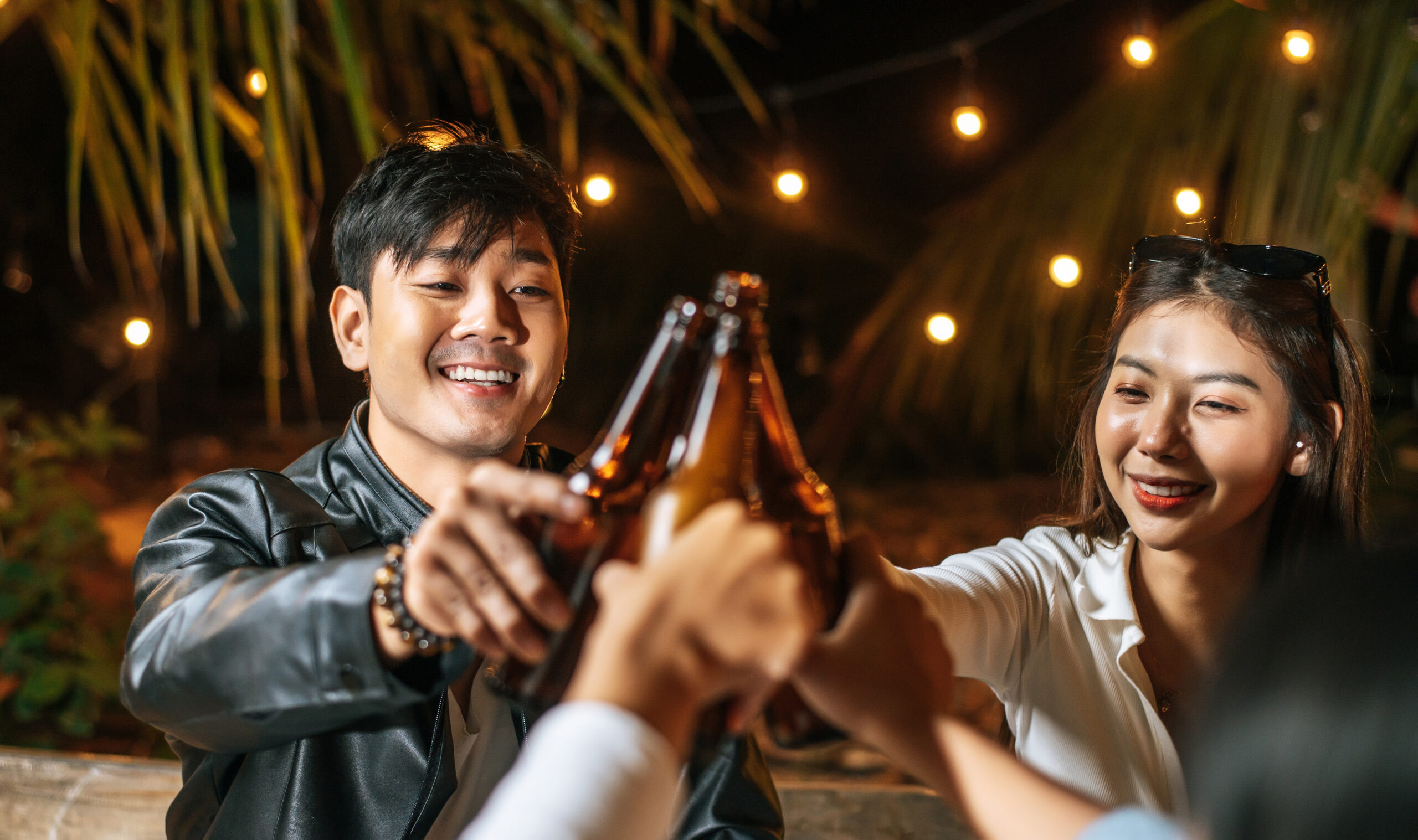In a world where the legal drinking age varies dramatically from country to country, Japan stands firm on its decision to maintain the age limit for alcohol consumption at 20 years old. This stance showcases a blend of cultural heritage, public safety concerns, and health considerations. As countries around the globe grapple with the implications of alcohol consumption among young people, Japan’s steadfast approach invites both admiration and debate. This article delves into the multifaceted aspects of Japan’s legal drinking age, exploring its origins, comparisons with global standards, and the societal impact of this regulation.
Japan Upholds Drinking Age at 20: An Overview
Japan’s legal framework has set the drinking age at 20 for several decades, a policy that aligns with the age of majority in the country. This law is part of a broader effort to ensure public safety and promote healthy lifestyles among its citizens. In Japan, turning 20 is celebrated as a rite of passage into adulthood, marked by the Seijin Shiki, or Coming of Age Day. The choice to align the drinking age with this significant milestone reflects a societal commitment to guiding young adults into responsible behaviors. Enforcement of this law involves stringent checks in bars, restaurants, and stores, with penalties for those who sell alcohol to minors or for minors who attempt to purchase alcohol.
Analyzing Japan’s Legal Drinking Age Stance
Japan’s decision to maintain the drinking age at 20 is rooted in a holistic view of youth development and public health. Authorities argue that this age limit helps in reducing alcohol-related accidents, discouraging underage drinking, and minimizing health risks associated with early alcohol consumption. Critics, however, question whether a higher legal drinking age effectively deters underage drinking or merely pushes it into less supervised environments. Despite these debates, the Japanese government maintains that the current legal drinking age is an essential component of its public health strategy, emphasizing education and awareness as key to fostering responsible alcohol consumption.
The History Behind Japan’s Age Limit for Alcohol
The legal drinking age in Japan has been set at 20 since the post-World War II era, reflecting the country’s age of adulthood. Historically, this was not just a legal distinction but a cultural one, as reaching the age of 20 has long been associated with increased personal responsibility and social expectations. The enactment of the law was initially aimed at protecting young people from the potential harms of premature alcohol consumption. Over the years, this law has remained largely unchanged, a testament to its perceived effectiveness and importance within Japanese society.
Global Drinking Ages: How Japan Compares
Globally, the legal drinking age varies, ranging from 18 to 21 in most countries, with some exceptions. Japan’s legal drinking age is relatively high compared to nations like the United Kingdom, where it’s 18, and is on par with the United States, where it is 21. This positioning reflects a cautious approach to alcohol consumption, similar to that of the U.S., which also emphasizes the link between legal age and maturity. However, unlike in the U.S., where debates about lowering the drinking age surface periodically, Japan’s stance remains largely uncontested at the policy level, indicating a societal consensus about the appropriateness of the age limit.
Public Opinion Divided on Drinking Age in Japan
Public opinion on the legal drinking age in Japan is mixed, with some arguing for a lower age limit to align with other countries where young people are allowed to drink at 18. Proponents of lowering the age argue that it would acknowledge the maturity of younger adults and potentially reduce the allure of underage drinking. Conversely, a significant portion of the population supports maintaining the age limit at 20, citing health concerns and the need to protect young people from the risks of alcohol abuse. Surveys indicate that while younger Japanese may express curiosity about lowering the age, many adults, particularly parents and educators, favor the status quo.
Health Experts Weigh In on Japan’s Drinking Law
Health experts in Japan largely support the current legal drinking age, pointing to research that suggests delayed onset of drinking can reduce the risk of developing alcohol dependence and other health issues. They argue that the brain continues to develop into the early twenties, and early exposure to alcohol can have detrimental effects on this process. Furthermore, there is concern about the impact of alcohol on young adults’ mental health, with studies linking heavy drinking in early adulthood to increased rates of depression and anxiety. Health professionals advocate for continued education on the risks of alcohol and for policies that protect the well-being of young people.
Legal Drinking: A Tool for Public Safety?
Japan’s legal drinking age is also viewed as a mechanism for enhancing public safety. By restricting access to alcohol until the age of 20, authorities aim to reduce incidents of drunk driving, alcohol-fueled violence, and other social ills associated with excessive drinking. Data from law enforcement suggests that these measures have contributed to a decrease in alcohol-related offenses among young people. The law is also credited with encouraging a culture of responsible drinking, where alcohol is consumed in moderation among friends and family, rather than for the sole purpose of intoxication.
Youth Drinking Trends Amid Japan’s Strict Laws
Despite the strict legal drinking age, underage drinking does occur in Japan, as it does in many countries. However, studies suggest that the prevalence of underage drinking in Japan is lower than in countries with more lenient laws. Educational campaigns and community efforts play a crucial role in this achievement, focusing on the dangers of alcohol abuse and promoting alternative forms of socialization for young people. Social stigma associated with breaking the law also acts as a deterrent, reinforcing the message that drinking under the age of 20 is both illegal and socially unacceptable.
The Impact of Drinking Laws on Alcohol Consumption
The impact of Japan’s drinking laws on overall alcohol consumption is complex. While it appears to curb underage drinking, the culture of drinking among adults is still prevalent. Work-related socializing often involves alcohol, and drinking is embedded in many aspects of Japanese culture, from festivals to casual outings. Critics of the law argue that rather than preventing alcohol abuse, it simply delays the onset of drinking, suggesting that education and support systems are more effective in promoting responsible alcohol consumption.
Cultural Significance of Alcohol in Japanese Society
Alcohol holds a significant place in Japanese culture, serving as a social lubricant and a symbol of celebration and relaxation. Sake, for instance, is deeply rooted in Japanese tradition, used in ceremonies and as a gesture of hospitality. The legal drinking age does not diminish the cultural importance of alcohol but rather frames it within a context of responsibility and maturity. The law reflects a balance between preserving cultural practices and protecting public health, illustrating the nuanced relationship between tradition and modernity in Japanese society.
Future Prospects: Will Japan Change Its Drinking Age?
The future of Japan’s legal drinking age remains uncertain, with current policies firmly in place and little momentum for change. However, as global perspectives on alcohol consumption evolve and new research emerges on the impacts of alcohol on young adults, there may be room for debate and potential adjustment. Any proposal to change the legal drinking age would require careful consideration of public health data, cultural values, and the experiences of other countries, ensuring that such a decision is in the best interest of the nation’s youth and society as a whole.
International Influence on Japan’s Alcohol Policies
Japan’s alcohol policies, while deeply rooted in domestic concerns for public health and safety, are not immune to international trends and research. The World Health Organization and other global bodies advocate for policies that reduce harm from alcohol consumption, which may influence Japan’s approach to managing alcohol use among its population. Additionally, as Japan continues to engage with the global community, sharing knowledge and strategies with other countries, there may be opportunities to refine its policies in ways that enhance public health while respecting cultural traditions.
Japan’s legal drinking age of 20 represents a thoughtful balance between cultural traditions, public health concerns, and social responsibility. As societies around the world navigate the challenges of alcohol consumption among young people, Japan’s approach offers valuable insights into the potential benefits of setting a higher legal drinking age. While debates about the effectiveness of such policies continue, the Japanese model underscores the importance of education, community engagement, and respect for tradition in promoting a healthy, responsible attitude toward alcohol consumption. Whether or not Japan’s policies will evolve in the future remains to be seen, but for now, the country’s stance on the legal drinking age remains a key aspect of its commitment to the well-being of its citizens.








